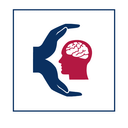Obsessive-Compulsive Disorder (OCD)
Hi,
I am Dr. Prasad Shetty here. Today I'll try to throw some insights into obsessive-compulsive disorder, a very common disorder in our population but not many people go to the psychiatrist for its treatment. People know about depression, people talk about anxiety, people talk about psychosis, but no one actually knows much about obsessive-compulsive disorder.
This is a disorder which has two components which are obsessions and compulsions, obsessions are thoughts and compulsions is action so what do you mean by obsessions? We all talk about obsessions, we say we are obsessed about things say we are obsessed about objects, but obsessions mean repetitive recurrent intrusive thoughts which come into your mind against your will and it increases in spite of trying to control it.
So what does typically happens with OCD patient is, when he has obsessions he tries to control his obsessions by compulsions like for example he touches his hand on something, some object, he feels his hands are dirty so the feeling is an obsession and cleaning of the hand is compulsions.
So I have told you a very simple thing that your hands are dirty and you are washing it, so what is the disorder, the disorder here is in spite of washing his hands multiple times the patient is not convinced that his hands are clean, so he has to go on doing it repeatedly and he goes on and on and there are people who wash their hands for hours together or wash or clean their personal objects for hours together.
Obsessions are of different types but predominantly it has to do with cleanliness, it has to do with symmetry, it has certain rituals and there are obsessions about sex and obsessions basically about activities around you and the worst obsessions when the patient feels very guilty is an obsession about sex and religion.
So whenever he is praying to god all of a sudden a bad word comes in his mind or he sees someone near to him, he thinks about sexual activity about that person. So these are the Obsessions which person feels very guilty about and the major drawback in this treatment is patient feels so guilty about it that they never go to seek help, they feel so guilty, they feel so bad they don't go to a psychiatrist for help and that is why most of them are untreated and most of them don't come to therapist.
The treatment of the obsessive-compulsive disorder is long and drawn out, it's simple in that context but it has to go on for a long time and in obsessive-compulsive disorder, both medicines and counselling are very important. People feel that medicines are not useful, medicine is very much useful because obsessive-compulsive disorder is due to deficiency of the chemical in the brain by the name of serotonin because of which you get those thoughts and giving medicines, the intensity, the frequency of the thoughts come down and when your thoughts come down automatically your compulsions or the actions also come down.
OCD is not a sign of madness, people of obsessive-compulsive disorder are in touch with reality that's why they feel bad and guilty about it. In counseling most important therapy is CBT which is cognitive behaviour therapy where the patient knows and we teach the patient to deal with his obsessions and compulsions.
There is also other treatment like the aversion therapy, the inclusion therapy, these are all very scientific terms but what I am trying to say here is that with these therapies patients can come to control obsessions and compulsions. There is no fixed duration of treatment, it can go on for a long time or it can go on for a short time, it depends upon the patient’s personality, his family background, his family support and his insight into the problem.
So OCD, obsessive-compulsive disorder is a very treatable problem and if someone tomorrow tells you, you are a very obsessive personality that does not mean you have a disorder so before I wind up, I just tell you what a disorder is? a disorder in psychiatry is when it's more than normal that means it goes on for months and years, it is difficult to control in spite of all efforts you are not able to control the thoughts and the 3rd criteria is because of this it causes socioccupation deterioration that means because of your OCD, you are not able to lead a normal life and it affects your personal, social and occupational life.
This is OCD in short for you. Hope I could give some insight for you to understand this illness better.
Thank you.


+1.svg)
